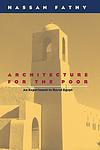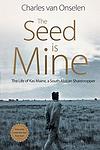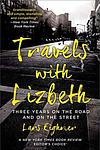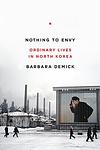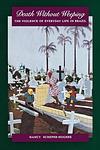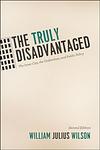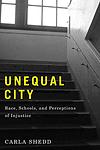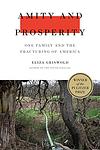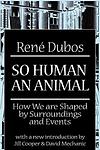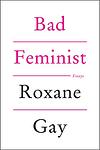The Greatest "Poverty, Nonfiction" Books Since 1900
Click to learn how this list is calculated.
This list represents a comprehensive and trusted collection of the greatest books. Developed through a specialized algorithm, it brings together 300 'best of' book lists to form a definitive guide to the world's most acclaimed books. For those interested in how these books are chosen, additional details can be found on the rankings page.
Genres
The category of "Poverty" in books refers to stories that explore the experiences of individuals or communities living in poverty. These books may examine the social, economic, and political factors that contribute to poverty, as well as the personal struggles and triumphs of those living in poverty. They may also shed light on the inequalities and injustices that exist within society and the impact they have on marginalized communities. Overall, books in this category aim to raise awareness and understanding of poverty and its effects on individuals and society as a whole.
Countries
Date Range
Reading Statistics
Click the button below to see how many of these books you've read!
Download
If you're interested in downloading this list as a CSV file for use in a spreadsheet application, you can easily do so by clicking the button below. Please note that to ensure a manageable file size and faster download, the CSV will include details for only the first 500 books.
Download-
26. Development As Freedom by Amartya Sen
The book in question is a seminal work in the field of economics and development studies, which argues that true development is best understood as the process of expanding the real freedoms that people enjoy. It challenges traditional indicators of growth, such as GDP, suggesting that they fail to capture the essence of human well-being. Instead, it posits that development should be assessed by the range of choices available to individuals, including access to education, healthcare, and the ability to participate in the economic and political life of society. The author emphasizes the interdependence of various types of freedoms, from political rights to economic opportunities, and the role they play in empowering people to live the lives they value.
-
27. Architecture For The Poor by Hassan Fathy
"Architecture for the Poor" is a book that describes an innovative approach to building in impoverished communities, focusing on the use of sustainable, cost-effective materials and methods that are culturally and environmentally appropriate. The author, an Egyptian architect, advocates for the use of traditional building techniques, particularly mud brick, and emphasizes the importance of involving the community in the building process. This approach not only helps to reduce costs but also empowers the residents, fostering a sense of pride and ownership. The book is both a critique of modern urban planning and a call to rethink architectural practices to better serve the needs of the poorest members of society.
-
28. A Theology Of Liberation by Gustavo Gutierrez
This book is a foundational text in the field of liberation theology, which integrates Christian theology with socio-political concerns, particularly social justice, poverty, and human rights. The author, a Latin American theologian, critiques traditional theological approaches for their indifference to the oppressed and marginalized communities. He argues that theology should be a critical reflection on praxis, emphasizing the liberation of oppressed peoples as a form of living out the Christian faith. The work challenges Christians to see Christ as a liberator and to take active roles in the struggle against social, economic, and political injustices.
-
29. Enrique's Journey by Sonia Nazario
"Enrique's Journey" is a poignant narrative about a young Honduran boy who embarks on a perilous journey through Central America and Mexico to reach his mother in the United States. The story, based on a Pulitzer Prize-winning newspaper series, explores the harsh realities faced by immigrants, the devastating impact of family separations, and the unyielding determination of a child in search of his mother. It offers a deeply personal and eye-opening perspective on the challenges and perils faced by undocumented immigrants.
-
30. The Seed Is Mine by Charles Van Onselen
"The Seed Is Mine" is a historical non-fiction book that explores the life of a black South African named Klaas, who lived through the tumultuous years of apartheid. Through extensive research and interviews, the author delves into Klaas' personal experiences, struggles, and aspirations, shedding light on the complex dynamics of race, class, and power during this period. The book offers a poignant and intimate portrayal of one man's fight for dignity and justice amidst a system designed to suppress and oppress.
-
31. Factories In The Fields by Carey McWilliams
"Factories in the Fields" is a seminal work that exposes the harsh realities faced by migrant farm workers in California during the early 20th century. The book provides an in-depth analysis of the agricultural industry, revealing how it operates much like an industrial factory, exploiting laborers who toil under severe conditions for minimal wages. It highlights the social, economic, and political challenges these workers encounter, including racial discrimination, inadequate housing, and lack of legal protections, drawing attention to the urgent need for reform in agricultural labor practices and policies.
-
32. Travels With Lizbeth by Lars Eighner
"Travels with Lizbeth" is a memoir that recounts the author's experiences of homelessness alongside his dog, Lizbeth, over a three-year period. The narrative provides a poignant and insightful look into the day-to-day realities and challenges faced by those living on the streets, from scavenging for food to finding safe places to sleep. The author's deep bond with his dog offers a source of comfort and companionship throughout their journey, highlighting themes of loyalty and survival against the backdrop of extreme hardship. The book also critiques societal attitudes towards the homeless, offering a powerful and personal perspective on poverty and disenfranchisement in America.
-
33. Nothing to Envy by Barbara Demick
"Nothing to Envy" is a non-fiction narrative that provides an in-depth look at life in North Korea through the eyes of six defectors. The book covers a span of 15 years, during which the country faced a devastating famine. It explores the lives of ordinary citizens, their indoctrination, their gradual realization of the truth about their government, and their decision to defect. The book paints a vivid picture of the harsh realities of life under a totalitarian regime and the struggle for survival and escape.
-
34. Death Without Weeping by Nancy Scheper-Hughes
"Death Without Weeping" is an anthropological study that delves into the lives of impoverished families in Northeast Brazil, particularly focusing on how extreme economic and social deprivation has led to a numbing acceptance of infant mortality. The book explores the complex interplay between societal structures, health, and local cultural attitudes towards death and motherhood. Through detailed fieldwork, the author reveals how scarcity of resources and the harsh realities of daily survival necessitate a pragmatic approach to grief and maternal attachment, challenging conventional Western perceptions of motherhood and human responses to death.
-
35. Random Family by Adrian Nicole LeBlanc
The book is an intimate exploration of urban life in the Bronx, focusing on the struggles of two women, their families, and their community. The narrative delves into the complexities of love, drugs, teenage pregnancy, and poverty, offering a raw and unflinching portrayal of the American underclass. It reveals the cycles of disadvantage and the impact of societal neglect on marginalized communities.
-
36. Little Heathens: Hard Times And High Spirits On An Iowa Farm During The Great Depression. by Mildred Armstrong Kalish
"Little Heathens" is a memoir of Mildred Armstrong Kalish's childhood on an Iowa farm during the Great Depression. Kalish recounts the daily struggles and joys of life on the farm, from making do with limited resources to finding creative ways to entertain themselves. Through her vivid descriptions and humorous anecdotes, Kalish paints a picture of a resilient and close-knit community that persevered through tough times with a spirit of determination and optimism.
-
37. The Truly Disadvantaged by William Julius Wilson
The book examines the impact of economic and social changes on the urban poor in the United States, particularly focusing on the African American community. It discusses how factors such as deindustrialization, suburbanization, and public policy have led to the isolation of the inner-city poor, exacerbating issues like unemployment, crime, and family instability. The author argues that both structural and cultural factors contribute to the challenges faced by the truly disadvantaged and calls for a combination of social and economic policies to address these deep-seated issues.
-
38. The Glass Castle by Jeannette Walls
This memoir recounts the unconventional, poverty-stricken upbringing the author and her siblings had at the hands of their deeply dysfunctional parents. Their father, an alcoholic, and their mother, an eccentric artist, frequently neglected them, leaving them to fend for themselves. Despite their parents' personal struggles, they instilled a love of learning and a sense of self-sufficiency in their children, which helped them to escape their chaotic home life and build successful lives as adults.
-
39. Hillbilly Elegy by J. D. Vance
"Hillbilly Elegy" is a memoir that explores the author's personal journey from a troubled upbringing in a working-class Appalachian family to achieving success as a Yale Law School graduate. Through his own experiences, J. D. Vance delves into the challenges and complexities faced by the white working class in America, addressing issues such as poverty, addiction, and the cultural dynamics that shape their lives. This poignant and thought-provoking account offers a compassionate and insightful examination of social and economic struggles, while also reflecting on the importance of family, resilience, and the pursuit of the American Dream.
-
40. Unequal City by Carla Shedd
"Unequal City" examines the intersection of race, class, and education in the urban environment, focusing on how the American educational and criminal justice systems shape the lives of young people in Chicago. The book delves into the experiences of Chicago high school students, highlighting the stark disparities they face based on where they live and go to school. Through a sociological lens, it explores the systemic inequalities that are perpetuated by institutional policies and practices, revealing how schools and policing policies not only reflect but also reinforce existing social hierarchies, contributing to a cycle of disadvantage for minority and low-income youth.
-
41. Invisible Child: Poverty, Survival And Hope In An American City by Andrea Elliott
"Invisible Child" is a non-fiction book by journalist Andrea Elliott that tells the story of Dasani, a young girl living in poverty in New York City. The book follows Dasani and her family as they struggle to survive in a city that seems to have forgotten them. Despite the challenges they face, the family never loses hope, and their resilience and determination are a testament to the power of the human spirit. Through Dasani's story, Elliott sheds light on the systemic issues that perpetuate poverty in America and the urgent need for change.
-
42. Poor Economics by Abhijit V. Banerjee, Esther Duflo
This book delves into the complex world of poverty, challenging conventional wisdom and assumptions about the economic decisions of the poor. Through rigorous analysis and empirical evidence, the authors explore how the poor make choices regarding education, health care, savings, and investments, revealing the logic behind these decisions. They argue that understanding these choices is crucial for designing effective anti-poverty policies. The book advocates for a more nuanced, bottom-up approach to economics, emphasizing the importance of specific, targeted interventions over broad, one-size-fits-all solutions. By combining detailed field research with economic theory, it provides insightful perspectives on how to empower the world's impoverished populations.
-
43. Ghettoside by Jill Leovy
This book is a gripping exploration of homicide in America, focusing on the disproportionately high rates of murder among African American men in the country's inner cities. Through a detailed case study in South Los Angeles, the narrative delves into the lives of those affected by these crimes, including the dedicated detectives working tirelessly to solve them. The author presents a compelling argument that the lack of effective law enforcement and the criminal justice system's failure to address these homicides are at the heart of the issue, leading to a cycle of violence that devastates communities. This work is both a poignant account of individual stories and a powerful call to action for systemic change.
-
44. Amity and Prosperity: One Family and the Fracturing of America by Eliza Griswold
This book is a detailed account of a family living in rural Pennsylvania, whose lives are disrupted by the fracking industry. It explores the economic desperation that leads small towns to welcome fracking, the environmental and health disasters that follow, and the legal battles that families must wage to protect their rights. The narrative also delves into the political and social divides that the fracking industry exacerbates, providing a comprehensive look at the impact of this controversial practice on American society.
-
45. Good Economics For Hard Times by Abhijit V. Banerjee, Esther Duflo
This book delves into the pressing economic challenges of our time, offering insightful analysis and solutions grounded in rigorous research. The authors, both Nobel laureates, tackle issues such as immigration, inequality, and job automation, debunking common myths and presenting evidence-based strategies for fostering economic growth and reducing poverty. Through a blend of compelling narratives and empirical data, the book argues for the importance of nuanced, informed policymaking that prioritizes human well-being and sustainable development. It serves as a clarion call for economists, policymakers, and the general public to rethink how economic principles can be applied to address the complex problems facing society today.
-
46. So Human an Animal by René Dubos
"So Human an Animal" is a Pulitzer Prize-winning work that explores the complex relationship between the environment and human health. The book argues that the rapid technological advancements and urbanization of the 20th century have negatively impacted human health and happiness. The author suggests that a return to a more natural way of living and a reconnection with nature could help to alleviate these issues. The book is a call to action, urging society to consider the impact of its actions on the environment and human well-being.
-
47. Hunger by Roxane Gay
"Hunger" is a powerful memoir that delves into the complex relationship between the author's body and her experiences of trauma, shame, and self-worth. Roxane Gay fearlessly explores the physical and emotional implications of living in a world that often judges and marginalizes individuals based on their appearance. Through her raw and honest storytelling, she invites readers to confront their own biases and challenges societal norms, ultimately advocating for self-acceptance and compassion.
-
48. And Their Children After Them by Dale Maharidge, Michael Williamson
This Pulitzer Prize-winning book explores the lives of the American working class during the 1980s. It provides a detailed and poignant account of the struggles and hardships faced by the families in the Rust Belt region, as they grapple with job loss, poverty, and a rapidly changing economic landscape. The narrative follows the authors as they travel across the country, interviewing and photographing the individuals and communities affected by these changes, offering an intimate portrait of the American working class during a time of significant transition and turmoil.
Reading Statistics
Click the button below to see how many of these books you've read!
Download
If you're interested in downloading this list as a CSV file for use in a spreadsheet application, you can easily do so by clicking the button below. Please note that to ensure a manageable file size and faster download, the CSV will include details for only the first 500 books.
Download
